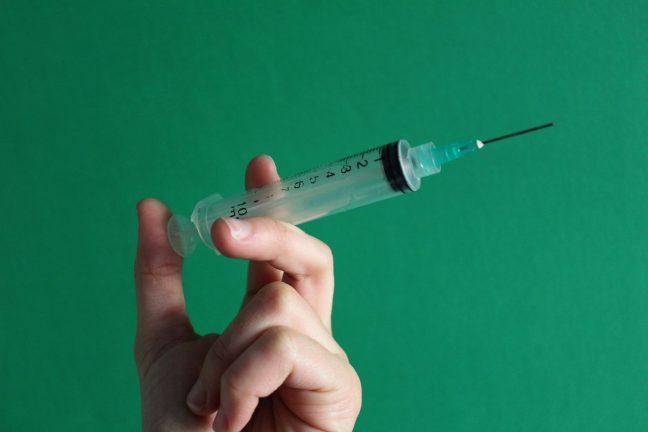Waisman Biomanufacturing at the University of Wisconsin and biotech company Heat Biologics are partnering to develop a COVID-19 vaccine for phase I and II clinical trials, according to a UW press release.
The vaccine would specifically target those at highest risk from COVID-19, including older populations.
Manager of Business Development at Waisman Biomanufacturing, Brian Dattilo, said the vaccine is currently in the preclinical phase, with phase I clinical trials expected for the first quarter of 2021.
Vaccines typically undergo three rigorous phases of clinical trials designed to prove their safety and efficacy.
Unlike conventional vaccines that work with inactivated viruses or viral genetic material, Heat Biologics’ vaccine consists of engineered human cells designed to activate more robust immune responses Jeff Wolf, founder and CEO of Heat Biologics, said.
Dattilo said the engineered human cells are modified to express the COVID-19 virus’s infamous spike proteins.
Just like in a typical vaccine, when the modified cells are injected, they are designed to trick the immune system into believing it has been infected, Wolf said.
Most vaccines, including the flu vaccine, activate a single type of immune system response by generating what are known as neutralizing antibodies, which attach to pathogens and make it harder for them to infect cells. Dattilo said that Heat’s cell therapy vaccine platform is designed to generate what is known as a cellular immune response, which would allow recipients to take advantage of the full capabilities of the immune system.
One key difference between Heat Biologics’ platform and most vaccines is that their approach is designed to be much better at activating highly specialized T cells, a type of immune cell that targets specific pathogens, Wolf said, adding that Heat Biologics was built around this cutting-edge vaccine platform.
“It’s a very unique approach,” Wolf said. “There’s no one out there doing anything like this.”
In addition to a COVID-19 vaccine, the company’s product pipeline boasts of three cancer vaccines, two of which are in phase I clinical trials and the third in phase II.
Heat Biologics’ COVID-19 vaccine is based on one of their lung cancer vaccines. The lung cancer vaccine leads T cells to invade the lungs to attack cancerous cells, exactly the kind of immune response that would be desired when it comes to COVID-19, Wolf said.
“We saw we had a powerful platform that can activate T cells to destroy whatever we want to get, so when COVID-19 came around, we said, we have a very powerful tool here, and we need to use this tool to eradicate and prevent the spread of COVID-19,” Wolf said.
Given national vaccine experts like Anthony Fauci predict a vaccine will be proven safe and effective by December, the general public may have access to a vaccine before Heat Biologics begins phase I trials.
Though, Wolf said current leading vaccine candidates may not be perfect.
“Usually it could take 10 years to get to get a vaccine approved, and we’re rushing through it in a few months, so you don’t know what percentage of the of the population these vaccines are going to help, or whether these vaccines are going to help the elderly,” Wolf said. “All of these current vaccines have the potential to be deficient in a number of ways.”
Dattilo said there is a high likelihood of leading vaccine candidates working well for younger, healthier people, but becoming increasingly less effective for older demographics. Such is the case with the flu vaccine.
Wolf said because the Waisman Biomanufacturing vaccine is designed to activate a separate immune response, it could be used in conjunction with an existing COVID-19 vaccine.
Heat Biologics first developed their COVID-19 vaccine in collaboration with the University of Miami, Wolf said. The company sent the vaccine to Waisman, which will mass produce the vaccine for upcoming clinical trials.
Being a publicly traded company with sufficient capital, Heat Biologics is funding the research out of pocket, Wolf said.
In order to get a vaccine to clinical trials, companies like Heat Biologics require additional expertise when it comes to manufacturing, testing and passing FDA requirements, Dattilo said.
“Academic investigators, basic researchers or biotech companies, they are typically the scientific experts in their fields, but in order to get a product into a human clinical trial, additional expertise is needed,” Dattilo said. “That’s where we come in.”
Dattilo said that while Waisman is a nonprofit part of UW, they work closely with the biotech industry, contracting with companies around the world.


